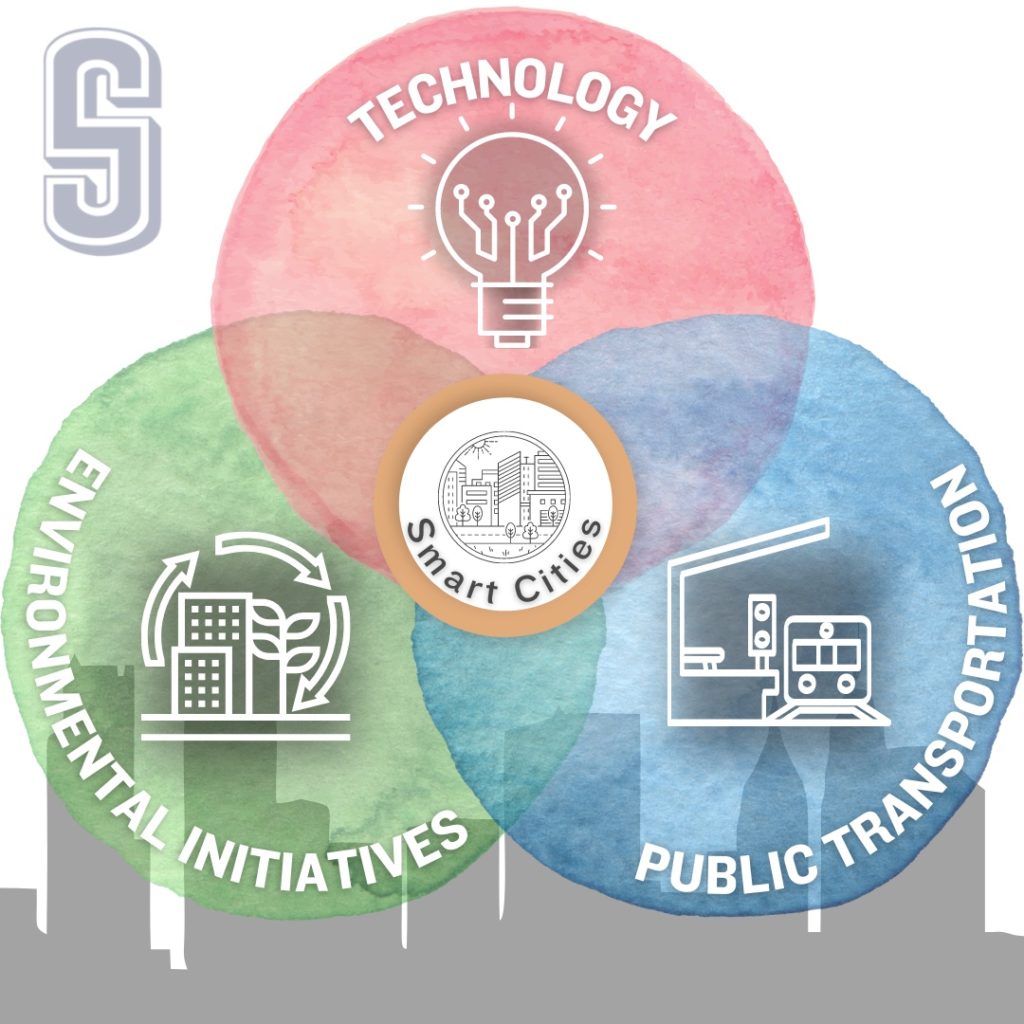How Smart Cities are revolutionizing the construction industry…
The IDC predicts that investments in Smart Cities will grow to $203 billion by 2024. Big investment, right? Smart Cities bring numerous benefits in how a city operates, but what are they?
TWI defines a Smart City as a city that “uses information and communication technology to improve operational efficiency as well as shares information with the public.” Frankly, there are multiple ways to classify a city as a “Smart City” which TWI identifies as:
• An infrastructure based around technology
• Incorporates environmental initiatives
• Implements effective public transportation
Essentially, the main goal of a Smart City is to improve city operations and stimulate economic growth. Cities across the world have implemented little ways to make their city “smarter” such as incorporating smart parking, introducing ride sharing services, or even dimming streetlights.
Not only do these tactics benefit citizens and improve their quality of life, but they also ensure sustainability and utilize resources in a more effective manner. Since there are numerous classifications for Smart Cities, each city is in a different stage towards becoming “smart.” For example, both Indianapolis and Charlotte, cities where Shiel Sexton offices are located, are considered Smart Cities but in different ways.
Indianapolis’s Smart City Initiative primarily deals with innovating transportation and creating urban trails that help unify and link the city. The Indy-Go Bus Line is an example of this as it improves mobility and access across town. In addition, the Indianapolis Cultural Trail, an 8-mile trail that’s lined with art and cultural districts is another way that links the city of Indianapolis together. Lastly, the city of Indianapolis also has a RebuildIndy program that aims to build bike lanes, greenway trails, rebuild bridges, repave streets, etc.
Charlotte’s Smart City Initiative, on the other hand, is geared more towards helping the digital divide while also implementing ways to create safer neighborhoods. COVID-19 intensified the digital divide, so the City of Charlotte combated this issue by implementing public Wi-Fi to help with remote work and virtual learning. Furthermore, Charlotte is also incorporating smart streetlights, 3D planning and zoning, safe and connected mobility in neighborhoods, and more.
As you can see, each Smart City will find its own way to benefit its citizens. Whether that is in terms of transportation, public Wi-Fi, or creating safer neighborhoods, advancements will continue to be made for the betterment of the city. In terms of construction, construction firms can expect cities across the world to start finding ways to be smart to improve how their city operates. Ultimately, this most likely will spark businesses to implement more sustainable practices in their business operations to help their cities become Smart Cities.
Smart Cities are instrumental in helping the economy and improving the lives of citizens, and we can only expect to see increased advancements made in Smart Cities across the world.

